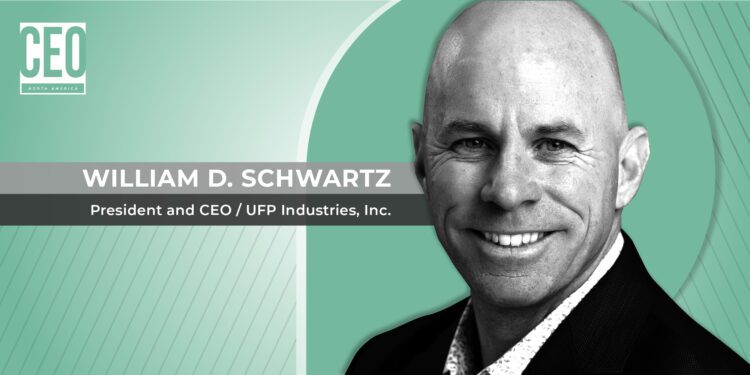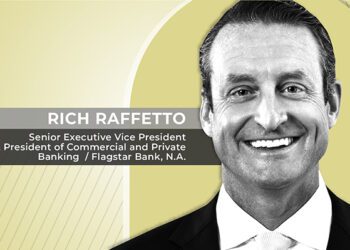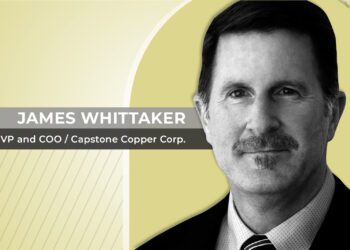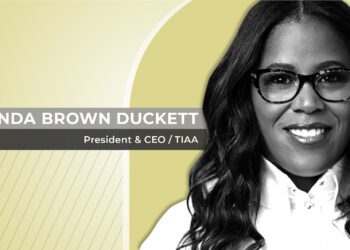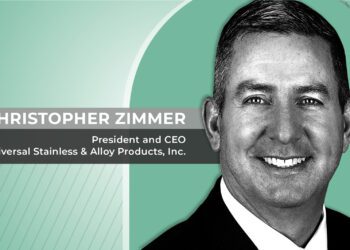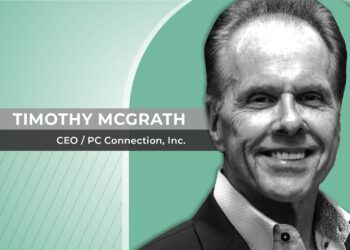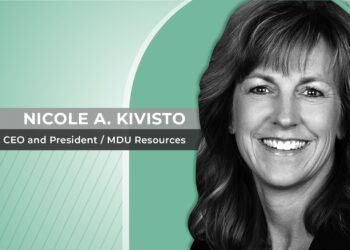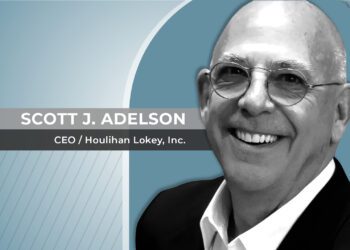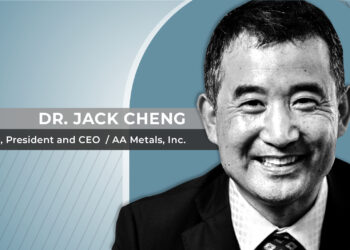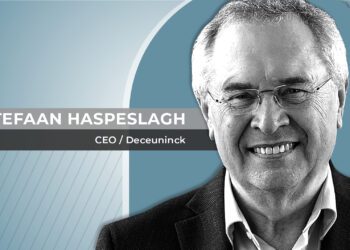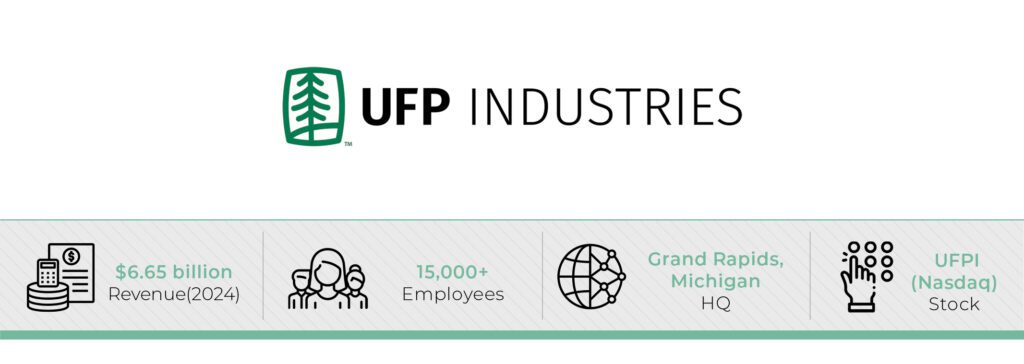

William D. Schwartz
President and CEO / UFP Industries, Inc.
For 70 years, UFP Industries – a building and packaging materials manufacturer headquartered amid the rolling hills of Grand Rapids, Mich. – has quietly amassed a wealth of Knowledge about the industries it serves alongside its industry dominance. CEO William D. Schwartz says, the company is poised to leverage as a catalyst for the company’s next phase of growth.
“We want to put products in the marketplace that the customer sees and feels have value that they’re willing to pay for. We’re going to drive return through that,” said Will Schwartz, who completes his first year as CEO of UFP Industries this December.
“We are skating to where the puck is going,” he concluded. “You’ll see it in our investment. You’ll see it in our product development.”
Schwartz said in a recent interview, the hallmark of his leadership of the company will be further refining the company’s core business, pushing UFP Industries to its most competitive position yet.
UFP is currently dominant in several categories. It is the largest processor of treated lumber in the world, through its ProWood brand. It is the largest supplier of wood pallets in North America through its PalletOne business and it is a longtime supplier of key components for the manufactured housing and RV manufacturers that goes all the way back to the company’s founding in 1955.
Under Schwartz the company will focus on its core business in its Retail, Construction and Packaging segments and pursue disciplined new product innovation and strategic acquisitions, in order to continue the company’s long-standing record of profitability and growth.
“I thought UFP Industries would be the first company on my resume and the first check on the resume. Lo and behold, 26 plus years later, it’s the only company that I will work for.”
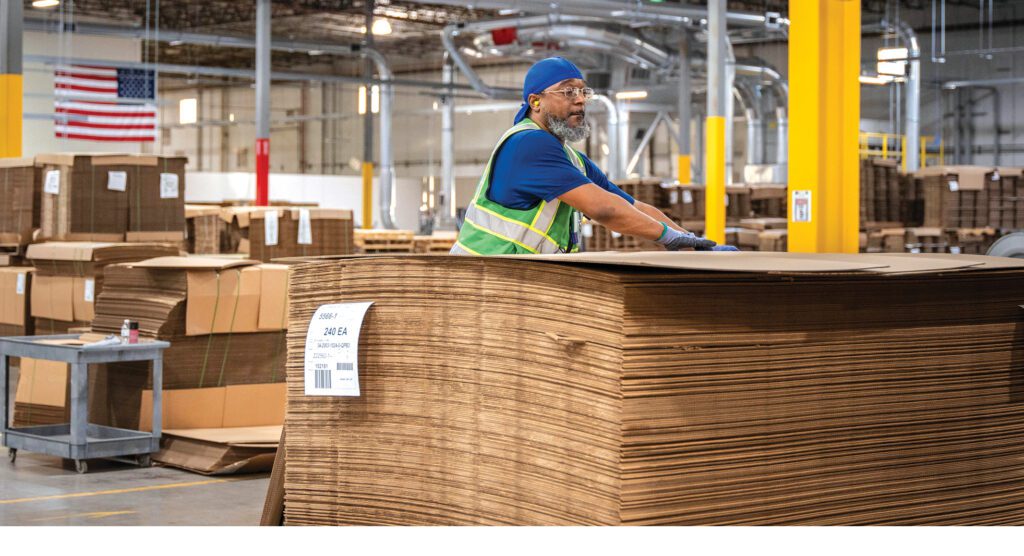

“There’s a heavy focus on driving product development and innovation and focusing on more value-added products compared to commodity materials,” he said. “That will be a theme you’ll hear from me and something that you’ll see under my leadership.”
“And I like to win. I like to grow,” he said. “For me, it’s about growth, and that happens both organically and inorganically. We’ve got a really strong balance sheet that we need to put to work. We are disciplined and patient in nature and ROI (return-on-investment) focused.”
Rooted in Customer Service
Serving customer’s needs has been at the center of the company since its earliest days, driven by the high value placed on a close relationship with the customer. This tie goes all the way back to 1955 when founder William F. Grant began selling lumber to housing manufacturers under the name Universal Forest Products.
“We’re sales driven, We focus and put a higher value on growth. We’re in a great capital position, with a strong balance sheet, and the ability to access that capital and grow.”
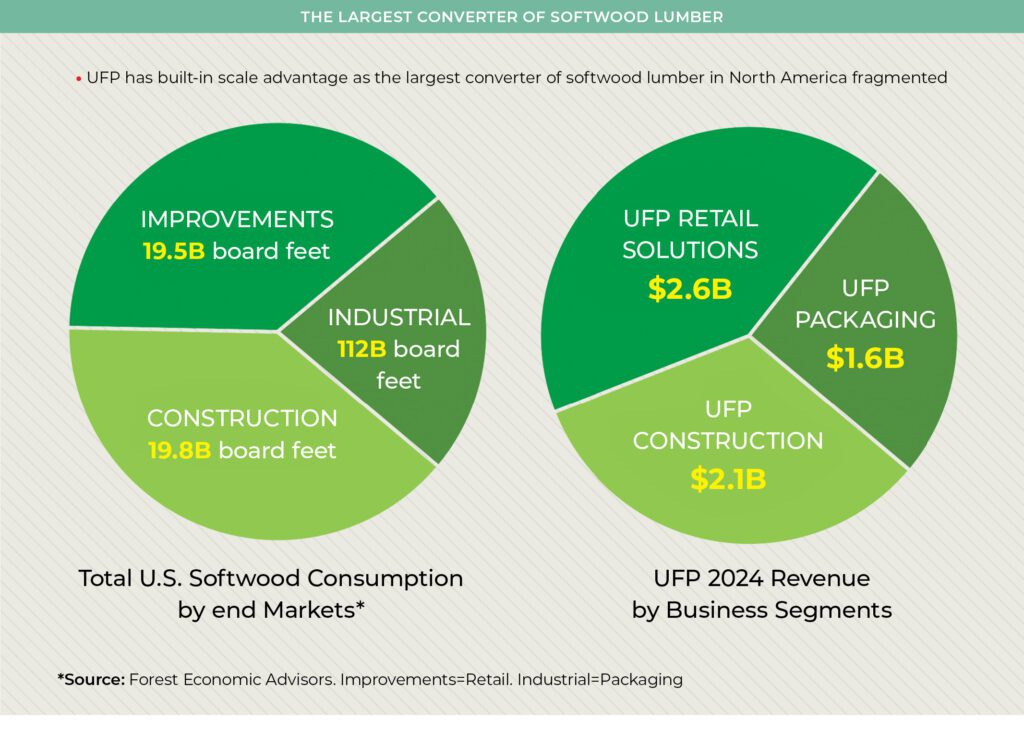

Over the following seven decades, the company moved steadily up the value chain to produce a wide variety of value-added products serving customers in key economic sectors, like construction, retail and packaging. The company went public in 1993 under the stock ticker UFPI and eventually changed its name from Universal Forest Products to UFP Industries in 2020.
Also in 2020, the company reorganized to further leverage the company’s size and range of expertise around three core segments and an international division:
UFP Retail Solutions – It’s branded-products unit that includes familiar brands Deckorators composite decking and ProWood treated lumber, found in retailers and distributors across the United States.
UFP Packaging – The unit designs, builds, and manufactures standard and custom shipping crates and pallets as well as protective packaging such as corrugate and labels.
UFP Construction – With more than 50 manufacturing facilities nationwide, this segment delivers a comprehensive range of building solutions. UFP Construction also offers custom retail and franchise environment solutions.
UFP International – Operates UFP Industries’ TimberBase™ digital lumber and building materials trading platform, as well as the company’s operations in Australia, Canada, India, Mexico and Spain.
The move to individual, market-based segments, Schwartz said, redirected a company that was largely organized and managed at a geographic level into one able to leverage both its size and vast expertise. “That was a monumental shift for the corporation, moving from more of a geography-based structure, which included a lot of autonomy at the plant and region level, to the segments that we exist in today,” he explained.
Schwartz pointed to the success of the company’s Surestone technology decking product as a byproduct of reorganizing the company around expertise rather than location.






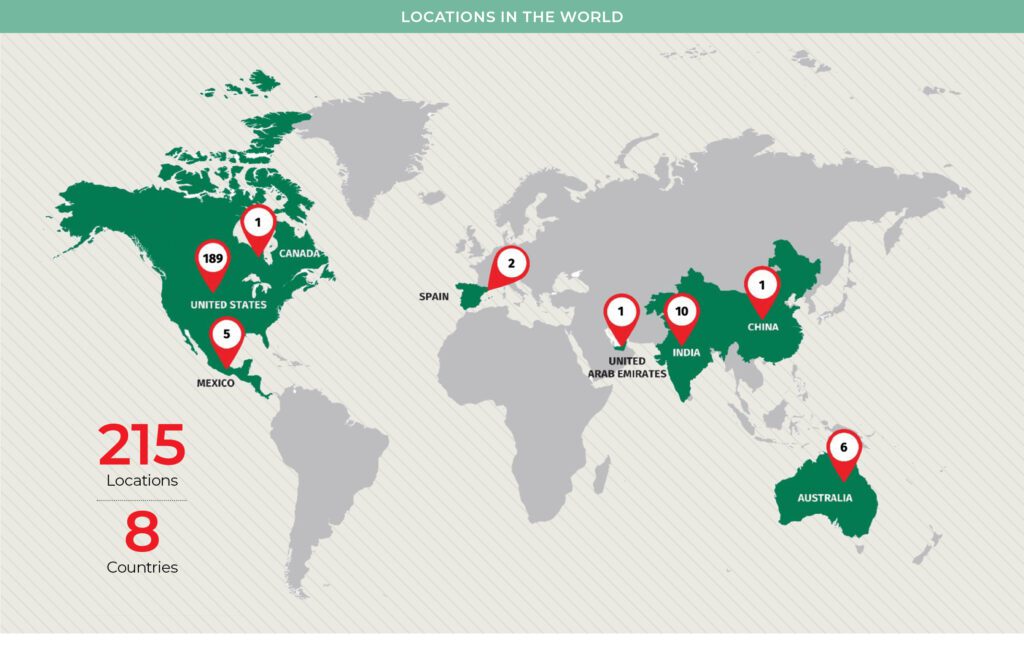

Sold through UFP Industries’ Deckorators brand, decking made with Surestone is unique in its product category because – unlike competition—it is not made from wood at all. The end result is a lighter board that dissipates heat more effectively and provides greater traction when wet than other composite decking options. The company also intends to apply this technology to a wider range of products, such as exterior trim.
The success of the product is reflected in a March 31 announcement from UFP Industries that it was making a $77 million investment in a 33-acre campus to build a state-of-the-art facility that will double production capacity for Surestone products.
Schwartz said the sales-driven company is continuing not just to respond to the customer, but predict what will solve the problems customers face. Other products brought to market in the last year include the U-Loc 200 nail-free crate fastener that is both reusable and eliminates the need for customers to use accident-causing nail guns and pry bars to assemble and disassemble crating. In the construction sector, the company has brought forward cold-form steel framing, called PIVOT Systems. These high-quality prefabricated wall components take cost, waste and time out of the high-rise construction process.
“We’re the only manufacturer and company in the marketplace that supplies all three of those markets,” Schwartz said.
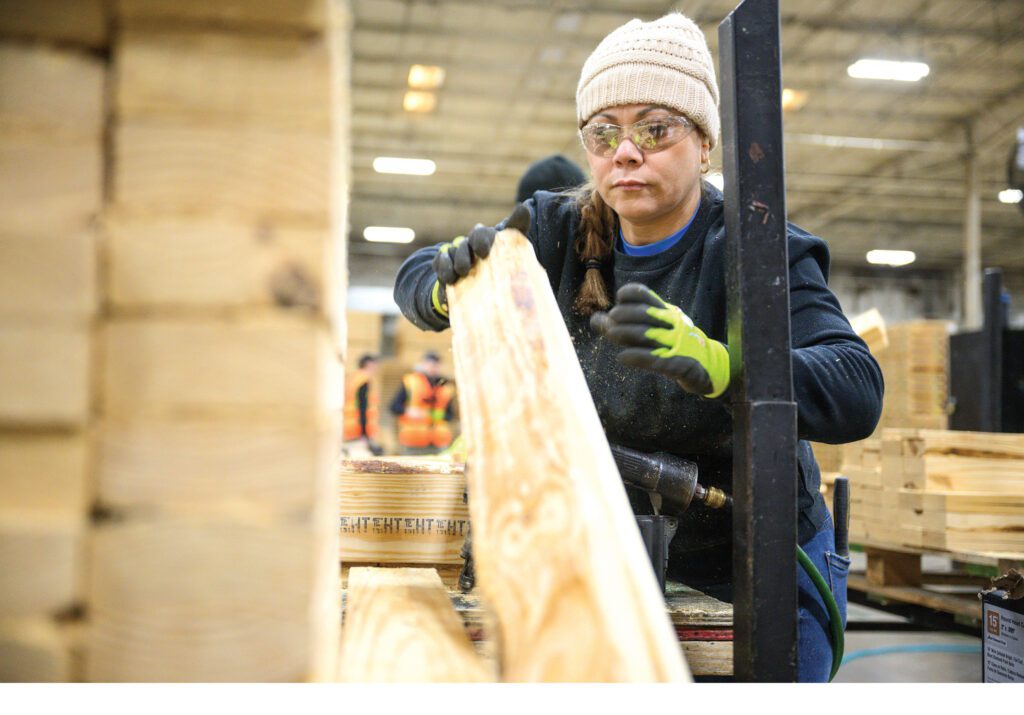

“We are innovative, and we’re going to bring new products, innovation, and value to our customers, and that in turn means a greater return to our shareholders.”
Aligning Interests
The company’s entrepreneurial culture and long-tenure workforce are the secret to UFP’s ability to consistently cultivate high-achieving employees, Schwartz said in an early 2025 press release marking the company’s 70th anniversary.
“Every day, our people show up and get to work, demonstrating the determination and grit that drives our company forward. And we want to take this special year to honor their outstanding leadership,” said Schwartz at the time. “I’m honored to join five other CEOs who worked their way from the ground up—I’m living proof that UFP is the place for self-made men and women. We measure our people by their hard work and the fire in their belly. The only person who holds you back is yourself.”
“I’m a sales guy at heart. I started with the company right out of college more than 26 years ago as a sales trainee and worked my way through the organization,” Schwartz told CEO North America of his own experience. “And lo and behold, 26 plus years later, it’s the only company that I will work for.”
To that end, UFP Industries actively encourages employees to treat the company as if it were their own and bases compensation from the shopfloor to the C-suite on ROI. About 10% of company stock is owned by employees, Schwartz said.
“If you’re thinking about it from an investor perspective, everyone’s acting and thinking like an owner of the company when thinking about the decisions they make,” he explained.
“When you have folks that are thinking, acting as business owners, they make really good decisions, and shareholders win in return.”
“We are extremely disciplined, we’re extremely patient, we’re ROI-focused, we’re sales driven,” Schwartz concluded. “We focus and put a higher value on growth. We’re in a great capital position, with a strong balance sheet, and the ability to access that capital and grow.”





